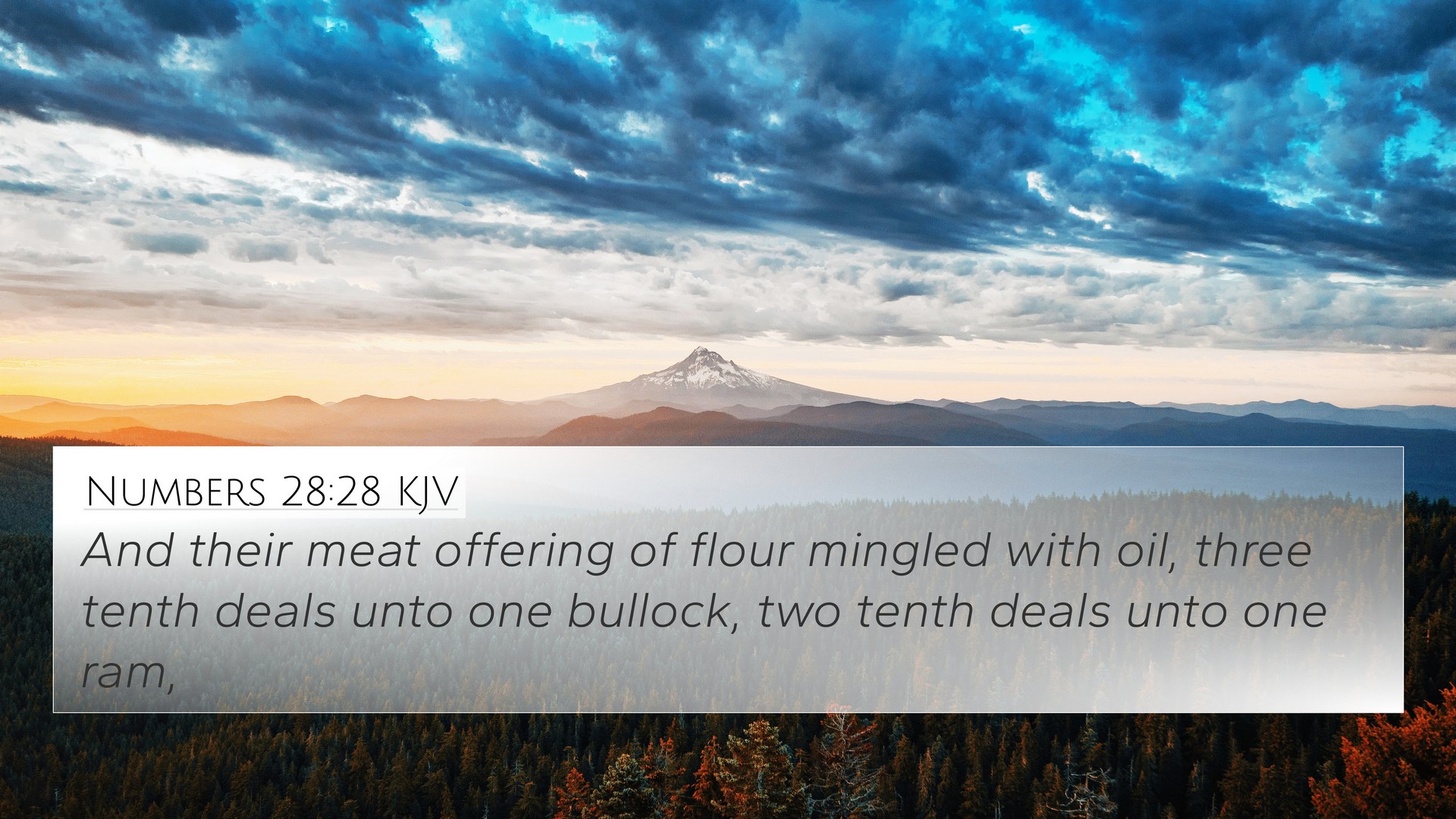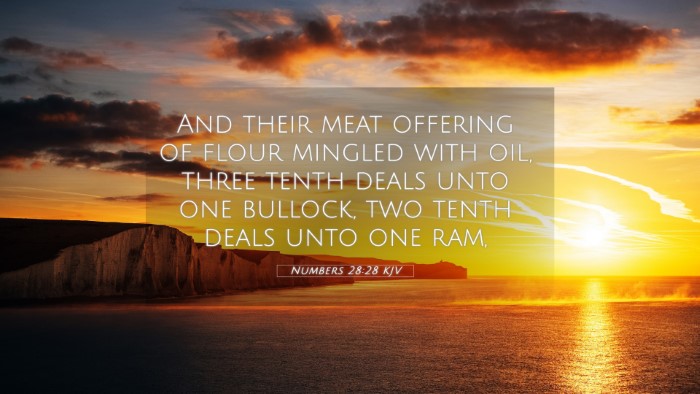Understanding Numbers 28:28
Numbers 28:28 states: "And the one lamb shalt thou offer in the morning, and the other lamb shalt thou offer at even."
This verse relates to the daily offerings in the Israelite temple worship and showcases the significance of the lambs as sacrifices.
Context and Significance
In the context of the Book of Numbers, which outlines laws and instructions for the Israelites, this verse emphasizes the importance of continual worship and the rituals that sustain the community's relationship with God.
Interpretation from Public Domain Commentaries
-
Matthew Henry:
Henry emphasizes the routine nature of these offerings, indicating that they highlight the necessity of presenting continual sacrifices to God.
He points out that these rituals are intended to ensure that the Israelites remain in constant fellowship with the Lord.
-
Albert Barnes:
Barnes remarks on the symbolic nature of the lambs, representing purity and atonement.
He discusses how these daily sacrifices signify a perpetual dedication to God and the acknowledgment of human sinfulness.
-
Adam Clarke:
Clarke provides insight into the historical context, explaining how the two daily lambs served to keep the altar of burnt offerings active.
He also ties in the significance of the morning and evening offerings as a divine ordinance ingrained in Israel's worship practices.
Bible Verse Cross-References
This verse can be cross-referenced with the following biblical passages, providing a deeper understanding of its significance:
- Exodus 29:38-42: Discusses the continual daily offering of lambs.
- Leviticus 6:13: Emphasizes the ongoing nature of the fire on the altar, symbolizing perpetual worship.
- Hebrews 10:10: Connects the sacrificial system of the Old Testament with the ultimate sacrifice of Christ.
- Psalm 55:17: Reflects the idea of offering prayers in the morning and evening, akin to the daily offerings.
- John 1:29: Refers to Jesus as the "Lamb of God" who takes away the sin of the world, drawing a parallel to the sacrificial lambs.
- 1 Peter 1:19: Discusses the significance of Christ's blood as of a lamb without blemish.
- Revelation 5:6: Depicts the Lamb as central in worship and redemption, echoing the sacrificial theme.
Connections Between Bible Verses
The thematic connections between Numbers 28:28 and these other passages help illuminate the continuity of God's redemptive plan through sacrifices.
Each cross-reference provides a unique lens through which the significance of daily offerings can be understood.
Cross-Referencing Biblical Texts
Effective cross-referencing enhances our grasp of scripture, showing how themes are interwoven throughout the Holy Text.
For instance, the ongoing sacrificial system and its fulfillment in Christ is a powerful example of this inter-Biblical dialogue.
Tools for Bible Cross-Referencing
To further explore these connections, consider using:
- Bible concordance: A useful tool for locating how often certain words or themes appear.
- Bible cross-reference guide: Offers insights on related verses, enhancing study.
- Bible chain references: A method of linking verses that deal with similar themes or subjects.
Conclusion
Numbers 28:28 underscores the importance of continual worship through the sacrificial system established in the Old Testament.
Using tools for cross-referencing can deepen your understanding of the Bible by connecting these verses to one another, thus allowing for a richer exploration of the themes of sacrifice and atonement throughout scripture.


